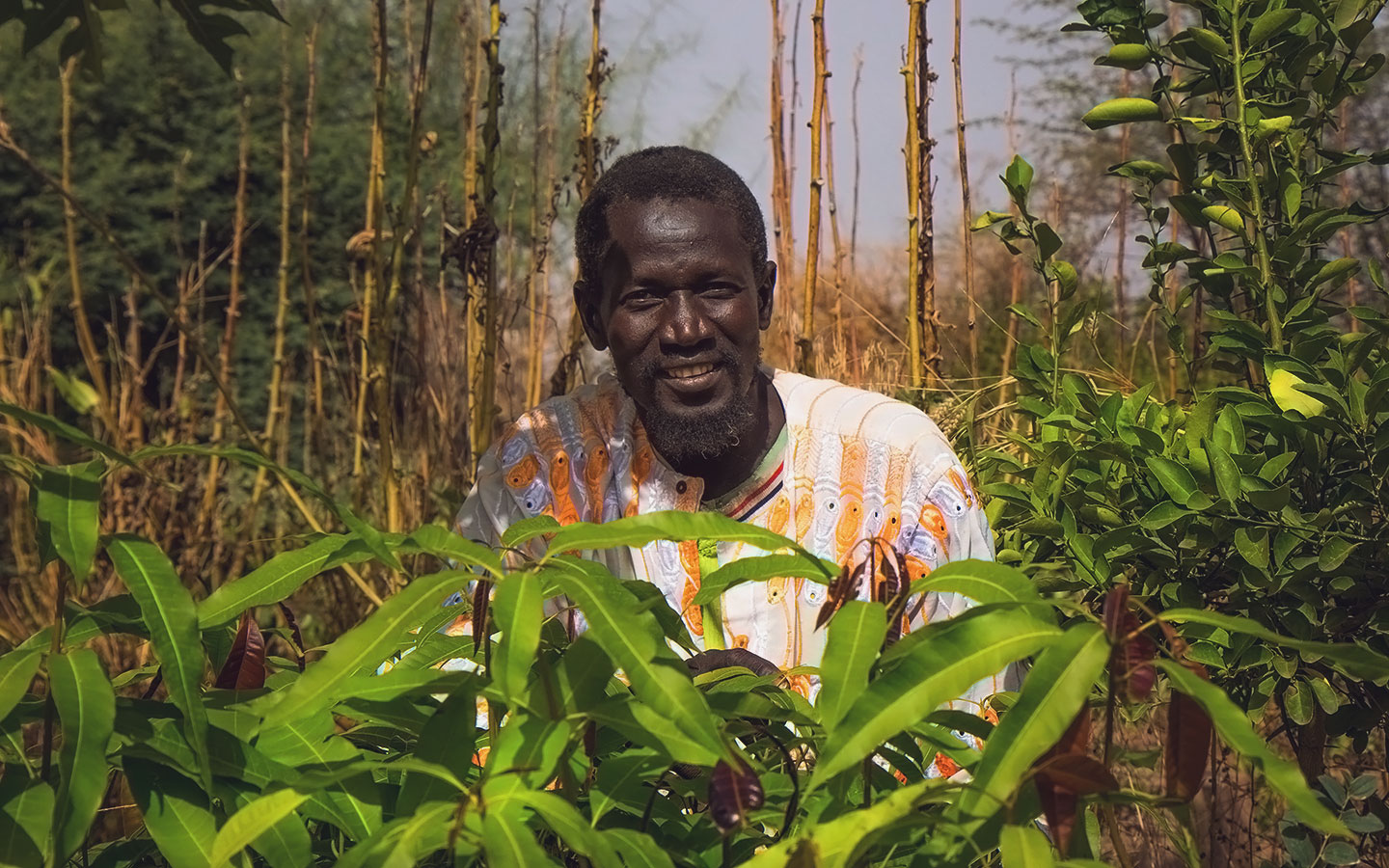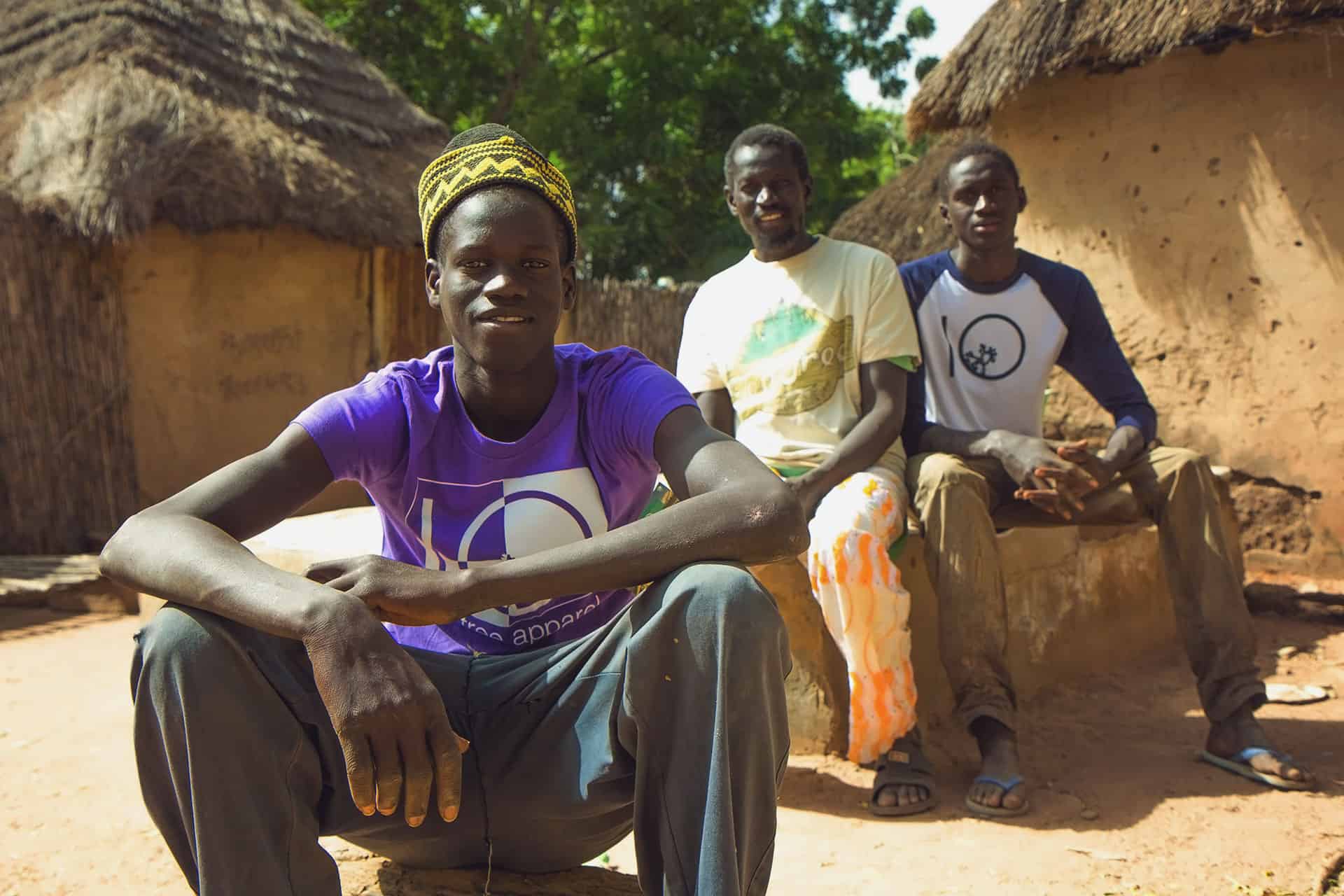Mate Mbaye’s Story
Did you know that young people in Senegal are so desperate that they’re crossing deserts and oceans in search of a better life?
You can only imagine the dangers. Some never make it there alive! But in their minds, risking death crossing the Sahara and the Mediterranean beats surviving another year as impoverished farmers struggling to make ends meet.
Last year, I traveled from village to village and met with teenagers and young men and women. Sitting on the dirt floors of huts, they shared their challenges in the Wolof language.
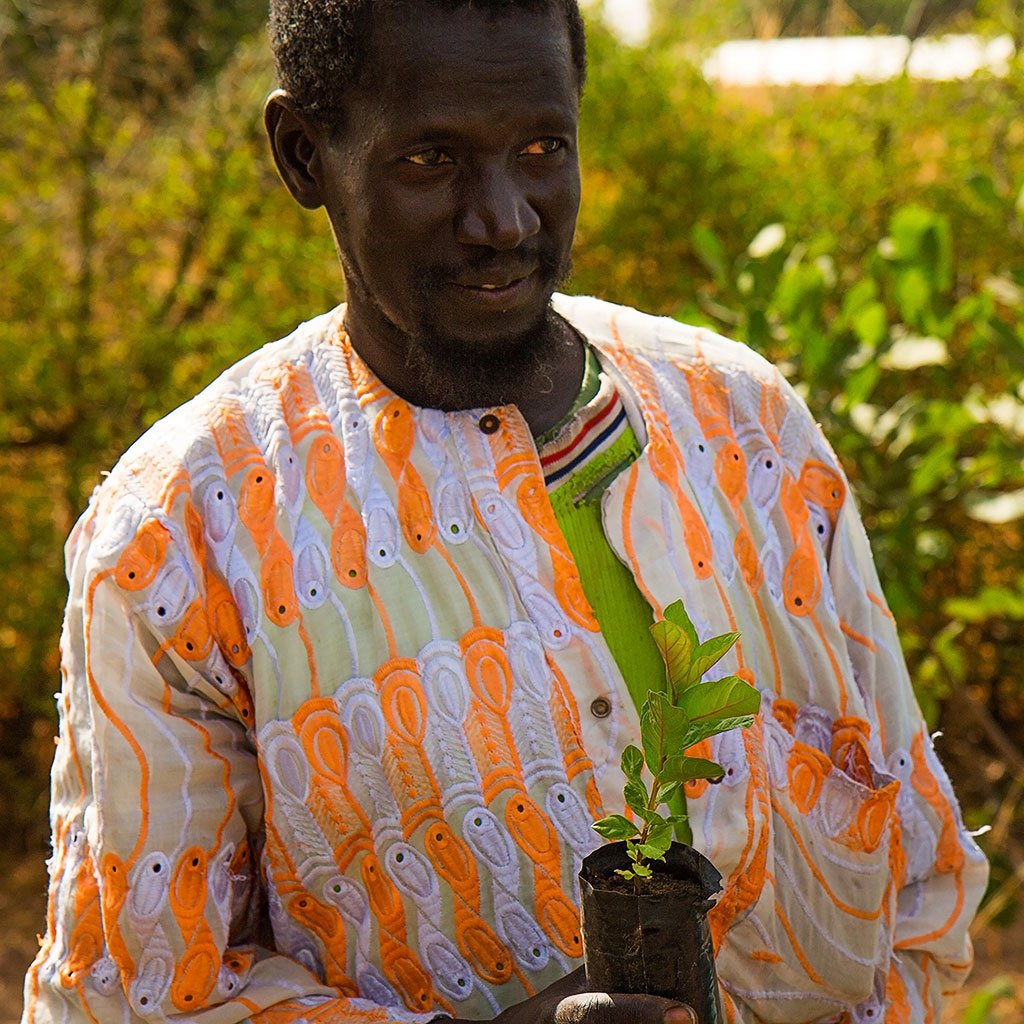
They’ve never gone to school. All they know is farming peanuts and maize, which has turned their families’ farms into barren landscapes. Many leave the village during the offseason and compete for low-paying, dangerous jobs.
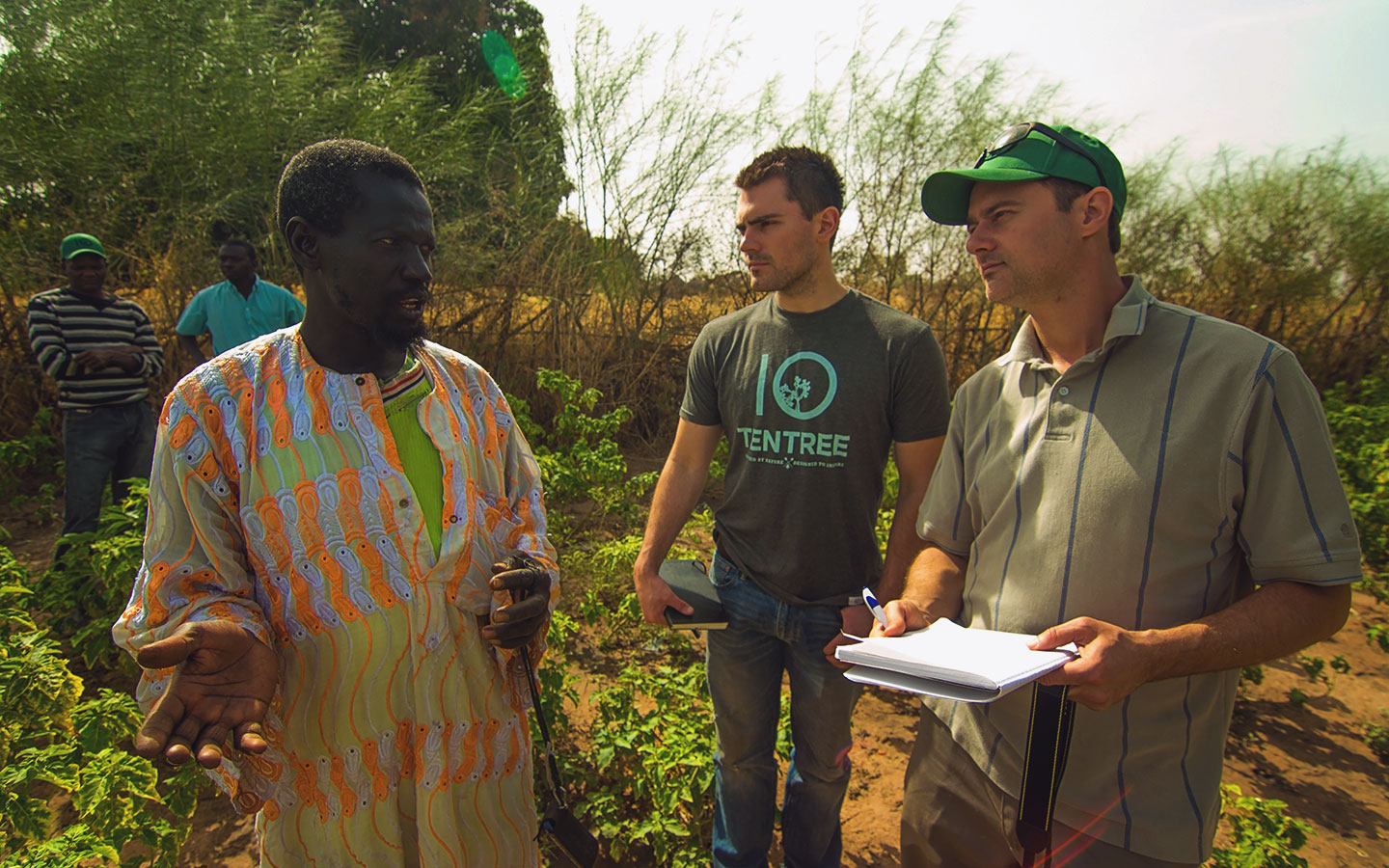
A Story of Hope: Meet Mate Mbaye
Not far from where I spoke with the youth, I met Mate Mbaye and his kids. I saw hope — and a solution: planting forest gardens.
Mate has nine people in his immediate family. When his uncle died, he took in his relatives and now has 25 mouths to feed.
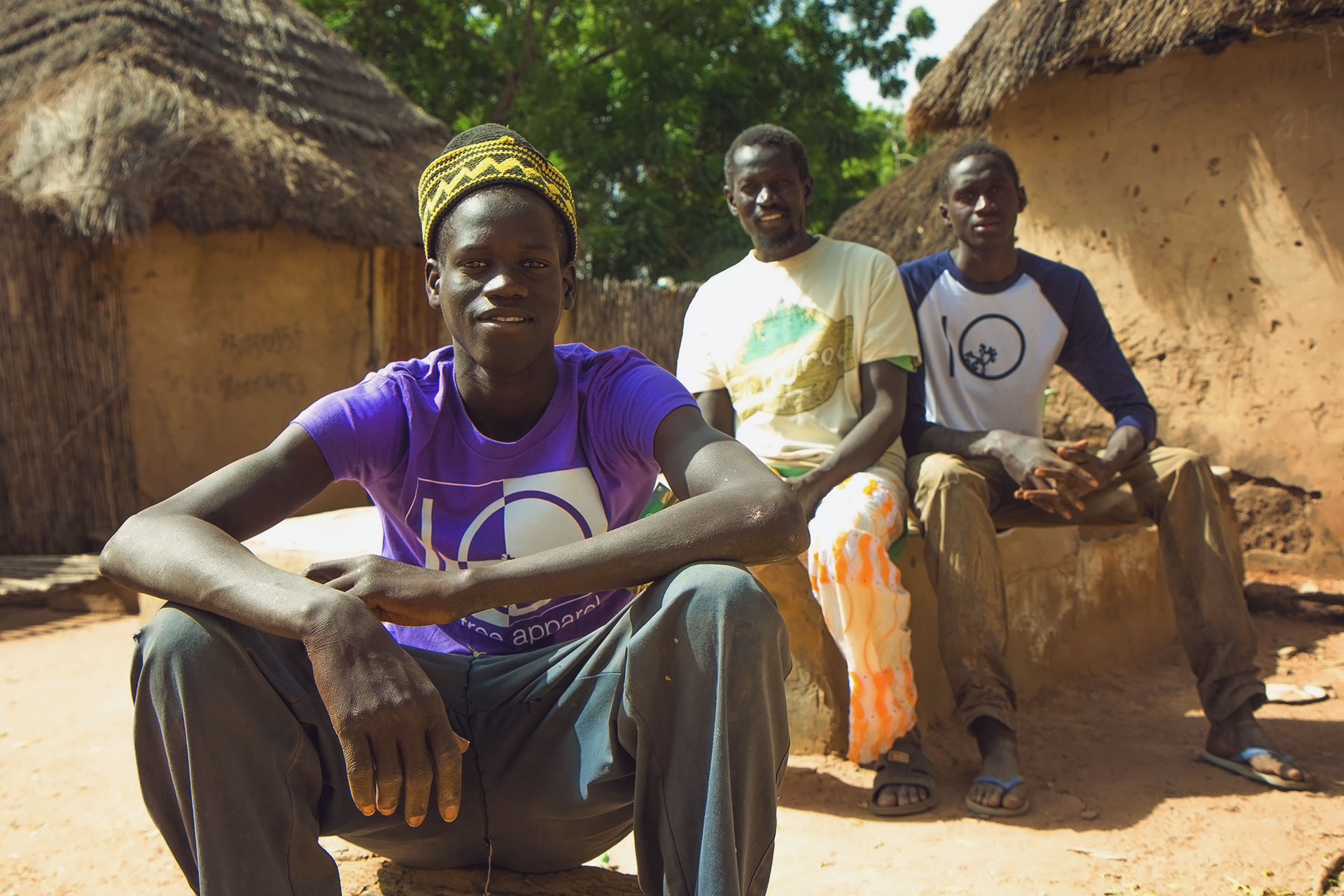
As you can imagine, he accumulated a lot of debt trying to care for the family. His annual peanut crop was dismal because his soil was dying. Mate tried to earn extra money by repairing radios in the market but still couldn’t make ends meet.
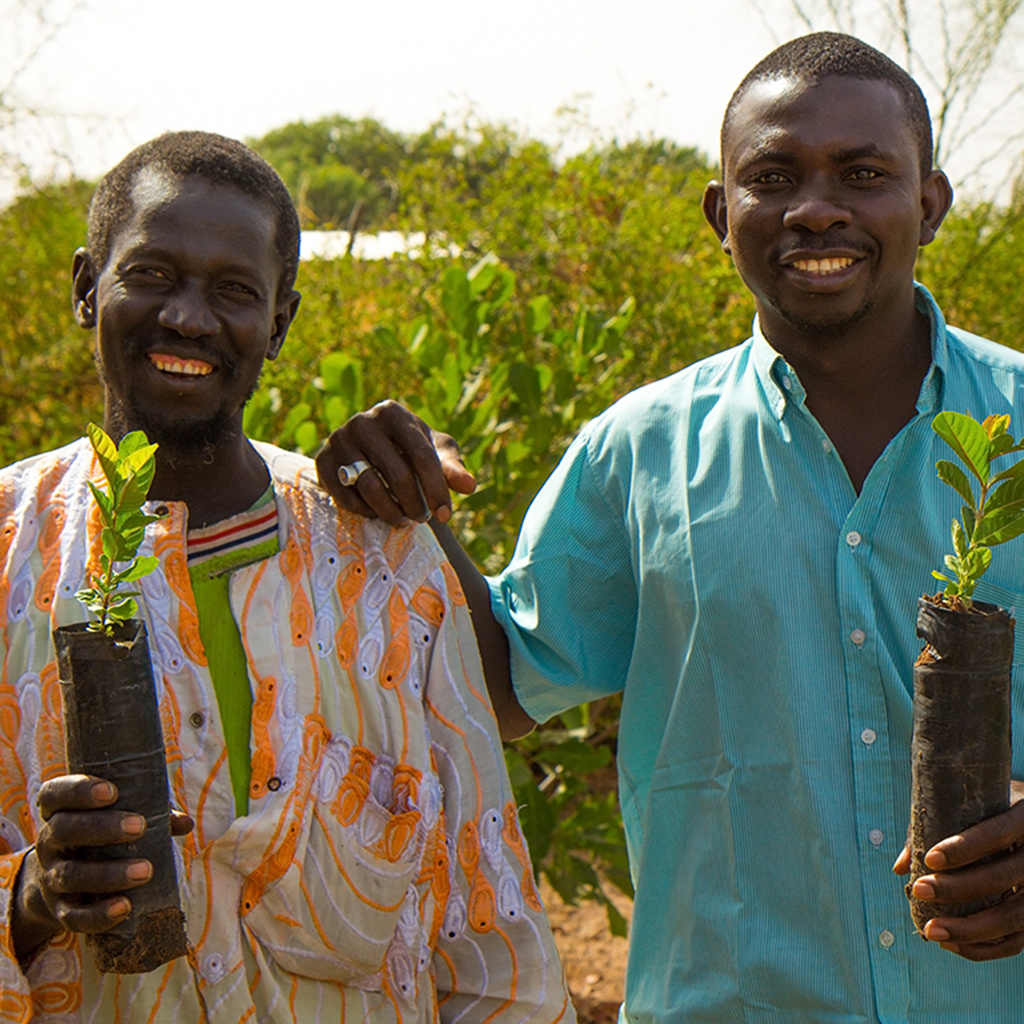
The Transformation Through Forest Gardens
Four years ago, Mate joined our program. Like thousands of other families we work with, his life turned around. Mate learned to revitalize his old farm with beneficial trees and graft valuable fruit trees. Today, seven patches of vegetables and a dozen types of fruit trees grow in his forest garden, feeding his family throughout the year.
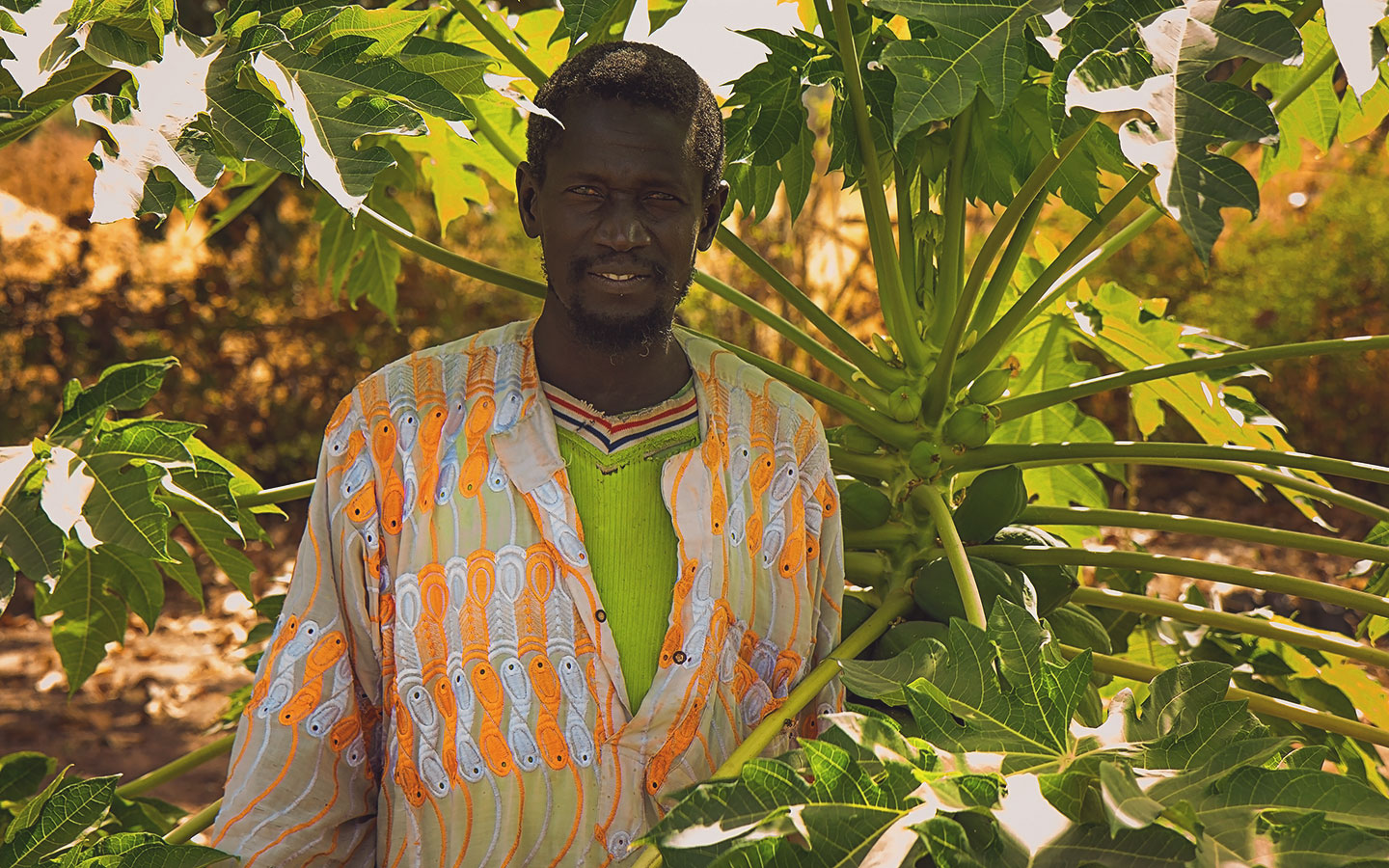
What is truly impressive about Mate Mbaye is how he now gives his kids the opportunity to help and feel responsible.
A Future Rooted in the Soil
Rather than planning to cross deserts and oceans in search of a better life, Mate’s kids are learning to grow their own future.
They learned to produce and sell mint and other vegetables under the 1,544 trees their father planted. With the proceeds, these enterprising boys bought chickens, clothes, and a radio. They even pay workers to help them grow more on the farm.
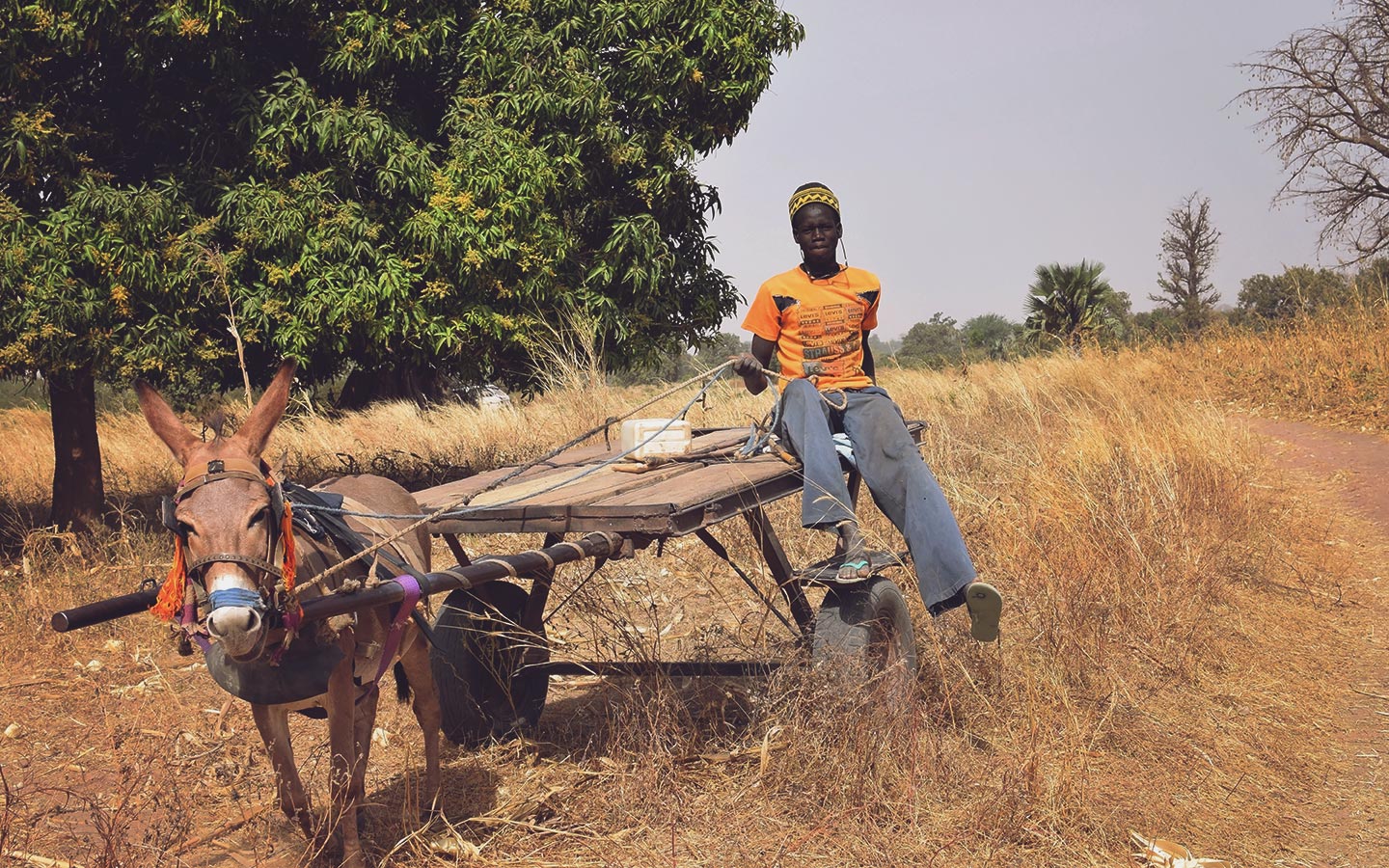
When he was a peanut farmer, Mate had accumulated a lot of debt trying to feed all 25 mouths. Now, thanks to his forest garden, Mate provides his family with nutritious foods every day of the year — and he has paid off all his debt!
Mate says: “I get more from my two-acre forest garden than I could get from six acres of peanut crop. My sons have a future now, and as I age, trees will continue to feed my family.”
It’s no surprise that Mate is now planting the living fence for a second forest garden. This will bring the family above the poverty line indefinitely.
Leaving a Lasting Legacy
Mate can rest assured that hungers are behind him. His sons are learning to grow their own opportunities, one seed at a time. One tree at a time.
His perspective on life is changing.
Mate’s grandparents left a legacy of a several mango trees that, decades later, continue to provide fruit for dozens of people. Mate wants his legacy to be thousands of fruit trees throughout his village, including soto ajana (heavenly fig) which he remembers from his childhood and which is nearly lost from the landscape.
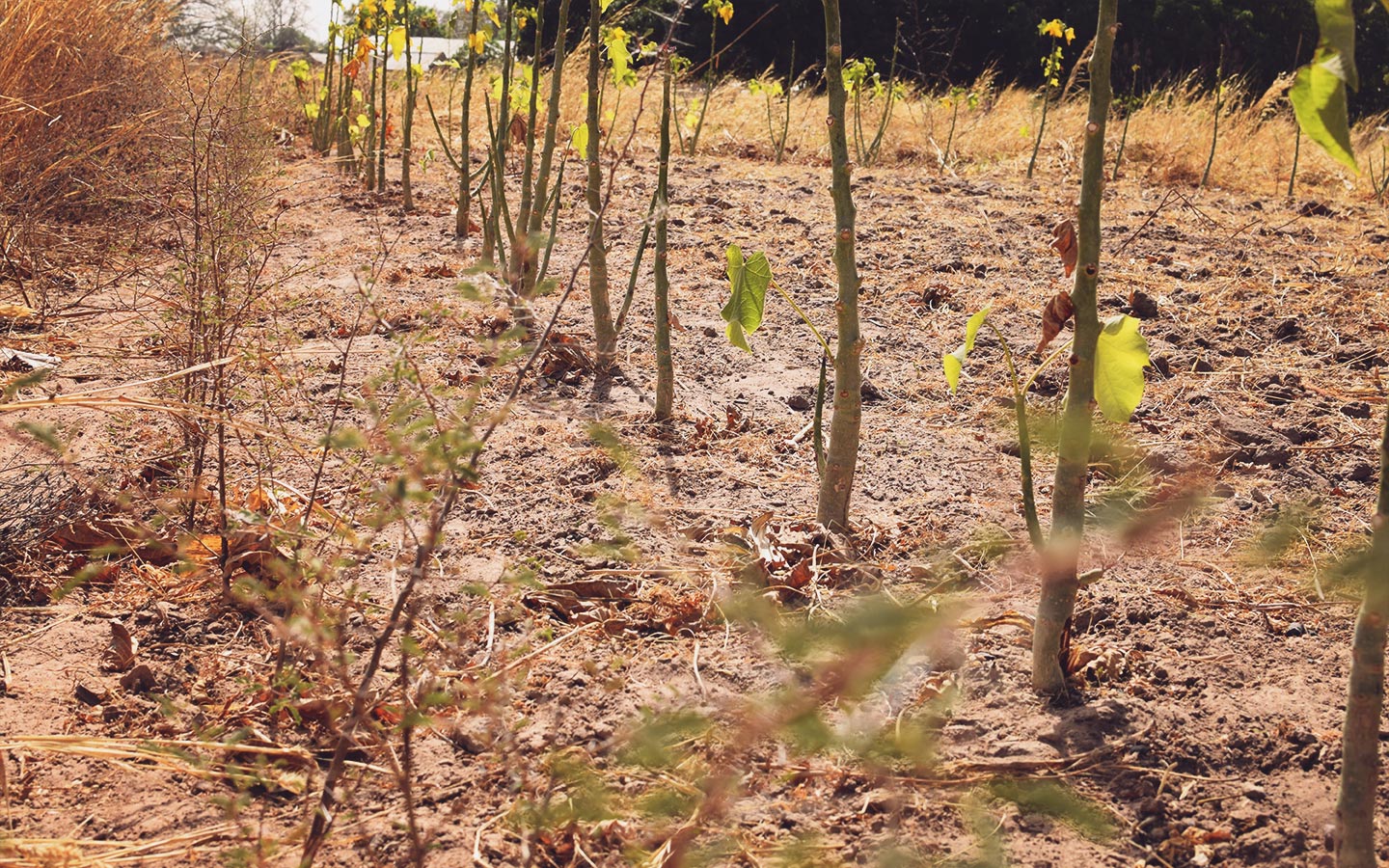
To make a permanent change in his community, Mate is now volunteering as a lead farmer in our program. He assists 20 more families in achieving his level of success while keeping Senegalese families safe, productive, and away from the horrors that lie across deserts and oceans.
